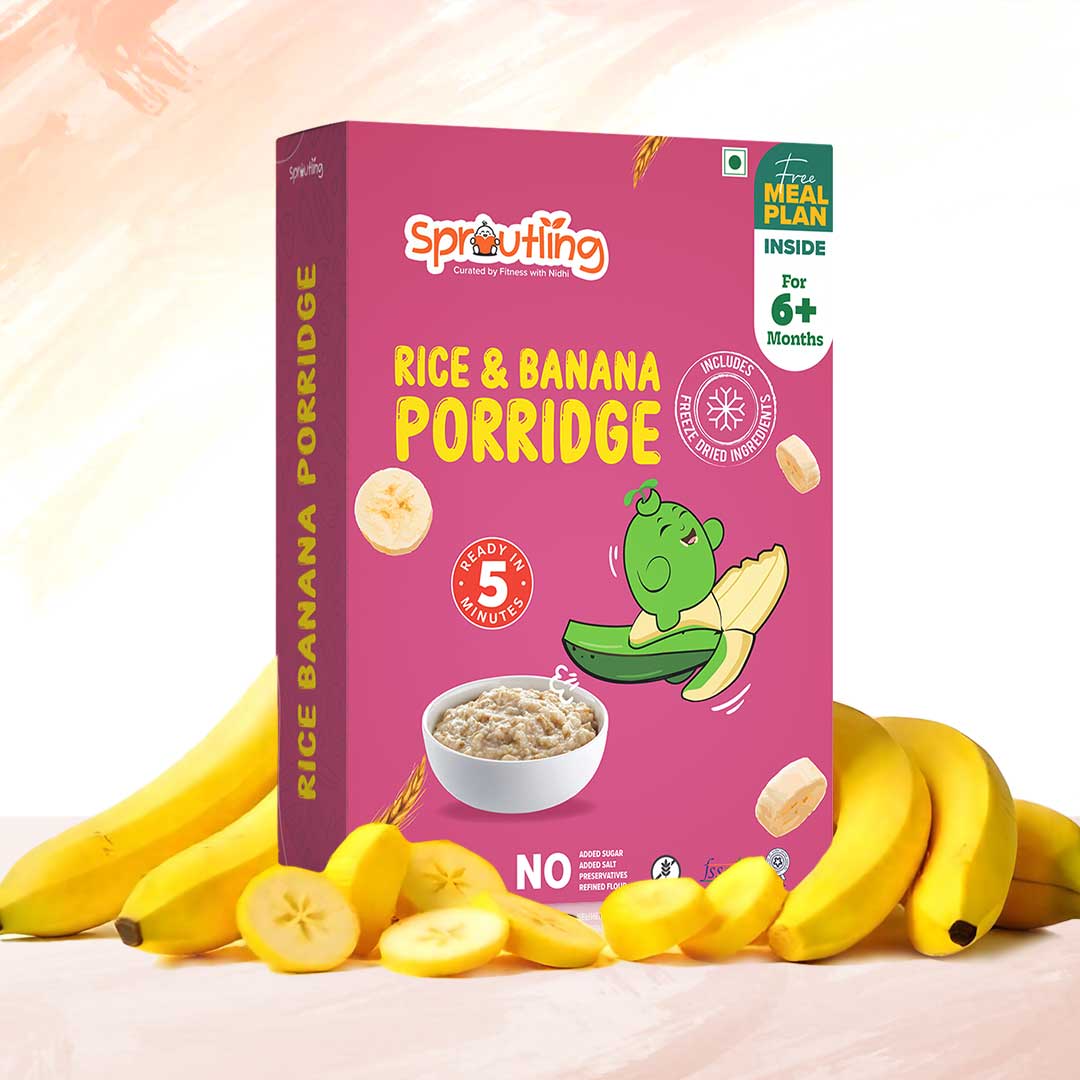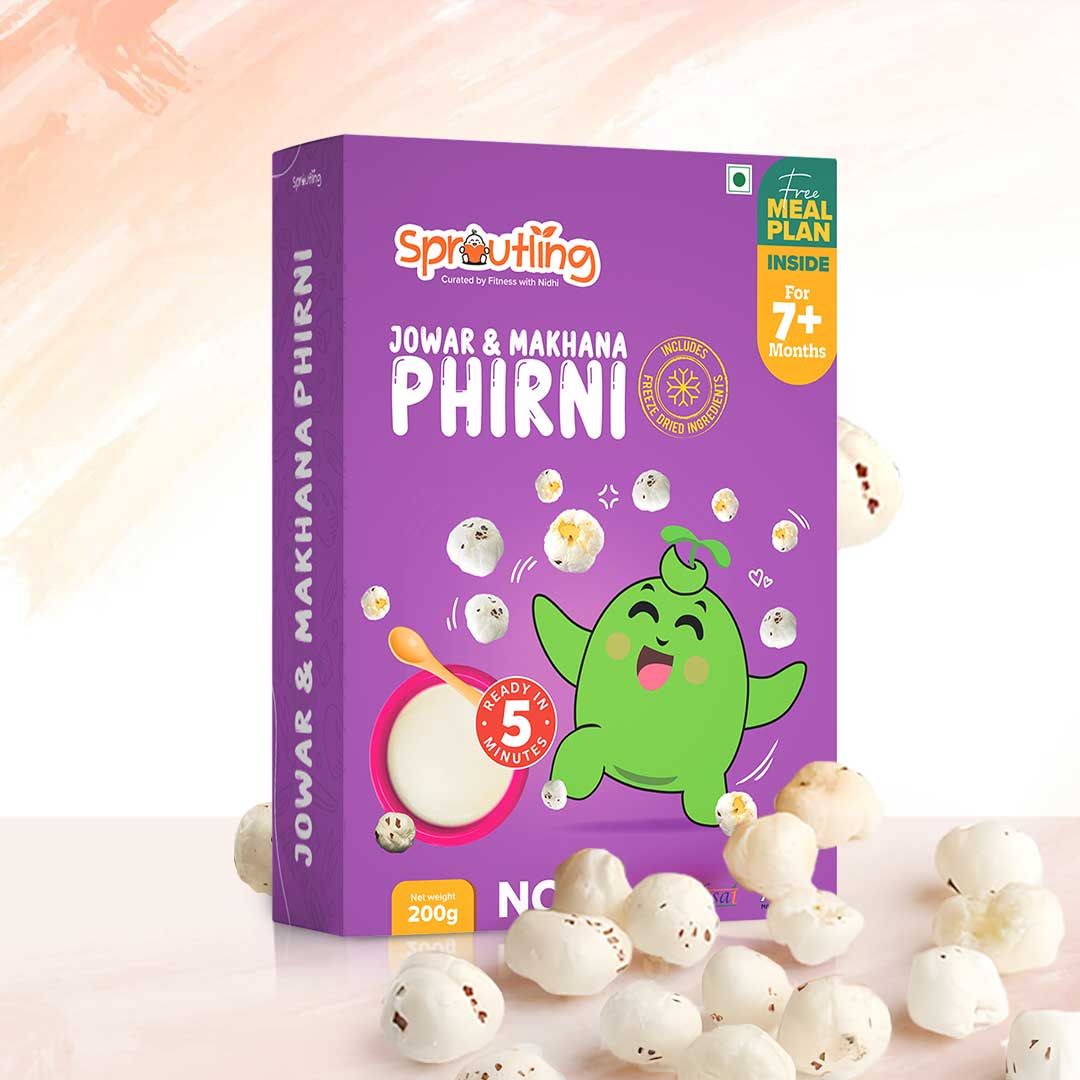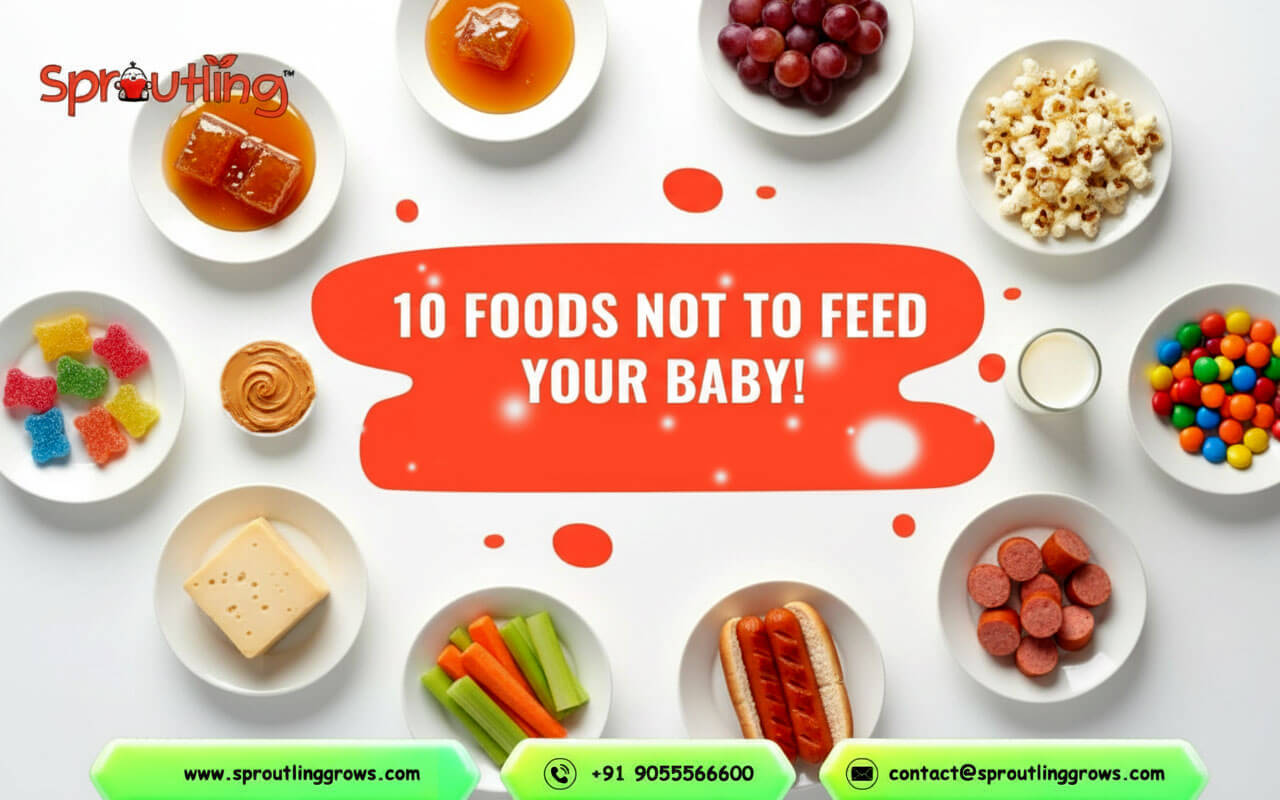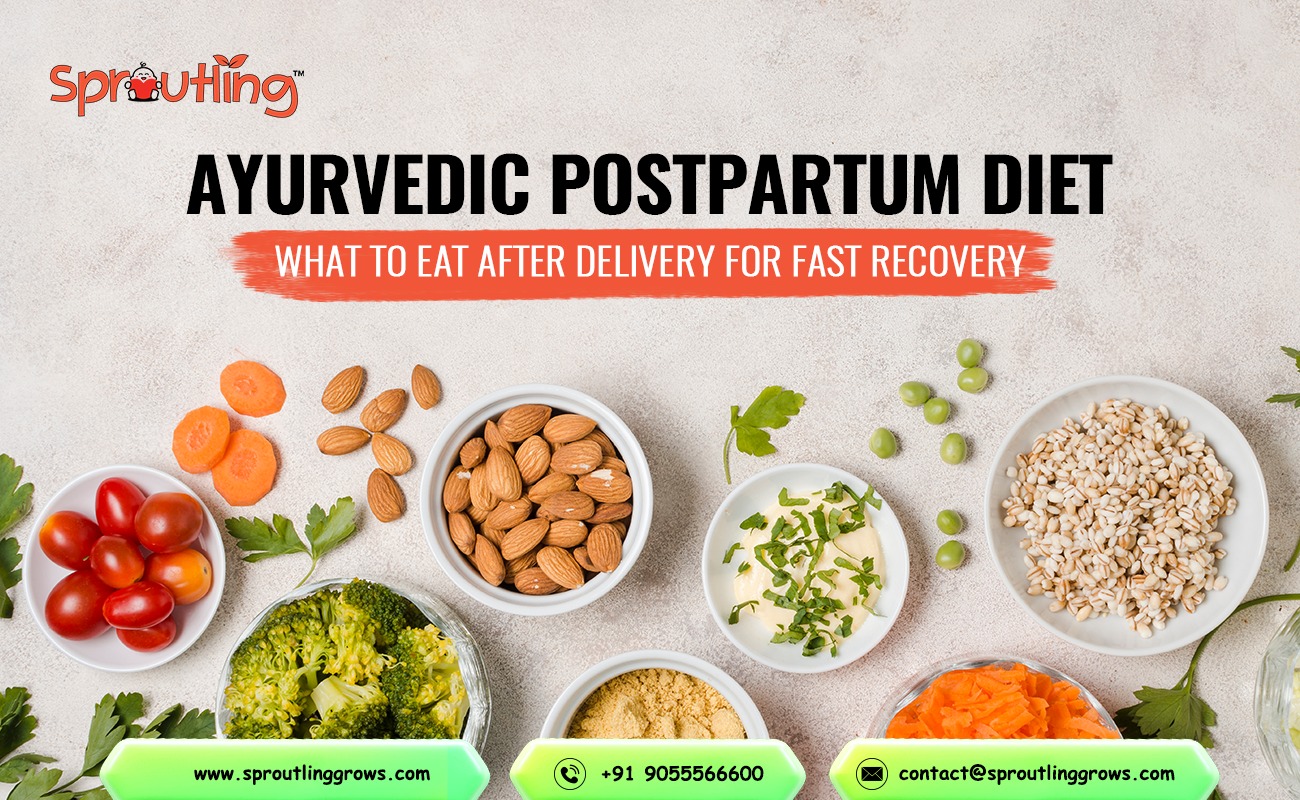
Ayurvedic Postpartum Diet: What to Eat After Delivery for Fast Recovery
Table of Contents
Bringing a new life into the world is a deeply transformative journey, both physically and emotionally. And once the baby arrives, your healing journey begins. While sleep and support are vital, nutrition is your foundation. Across centuries, Ayurveda has provided a natural roadmap for postpartum recovery. The Ayurvedic postpartum diet focuses on rejuvenating the mother’s body, balancing her energy (or doshas), and promoting overall well-being.
Whether you’ve just delivered or are preparing for your postpartum phase, embracing the Ayurvedic diet after delivery can help you heal faster, regain strength, and even support breastfeeding. Let’s dive into how the postpartum Ayurvedic diet works and what foods you should include in your daily routine. Let’s get to know the best Ayurvedic diet for new mothers.
The Ayurvedic Philosophy Behind Postpartum Healing
Vata incidents in Ayurvedic medicine describe childbirth since they activate the air and space elements throughout the body. Different imbalances, such as anxiety together with fatigue and digestive issues, can develop from this change. An Ayurvedic postpartum meal plan’s essential purpose includes both internal nourishment of the new mother and vata dosha reduction.
Ayurvedic texts explain that the initial 42 days during the suthika period stand as a vital period for new mothers. Simple oil-rich foods, as well as easy-to-digest grounding and warming foods, form the basis of postpartum nutrition to restore body balance.
Essential Foods in the Ayurvedic Postpartum Diet
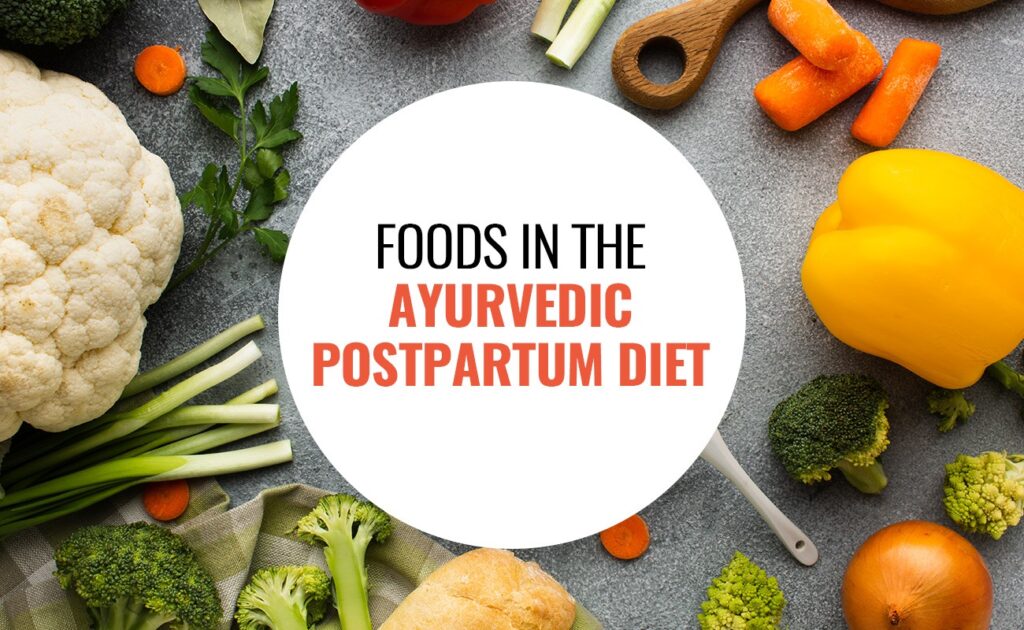
The correct selection of Ayurvedic postpartum meals provides grounding strength and improved energy levels at a point when you feel stormed and tired.
The main food categories according to Ayurveda that form a part of the postpartum diet include:
Healing Soups and Broths

New mothers should base their diet mainly on soups as per Ayurvedic traditions. Healing herbs, along with easily digestible hydration sources, remain the fundamental benefits of these recipes.
Try:
- Moong dal soup with cumin and ghee
- Bone broth with ginger and garlic
- Carrot and spinach soup with turmeric
- Portions of healing soup regulate digestive heat while offering warm comfort and helping the body rebuild tissue.
Warm Grains and Porridges

Grains supply nourishing energy that helps balance vata between the mind and body. A combination of rice, semolina and oats serves well as a breakfast topping with milk plus ghee and a dash of cinnamon or cardamom powder.
Examples:
- Rice porridge (kanji) with ajwain (carom seeds)
- Ragi porridge (rich in calcium and iron)
- A mix of wheat dalia served with hot milk, along with dates, serves as an Ayurvedic food after delivery.
The meals enable energy production while simultaneously promoting breast milk production. The incorporation of these foods into your postpartum meals according to Ayurvedic principles helps your digestive system recover peacefully.
Steamed Vegetables and Mung Dal Khichdi
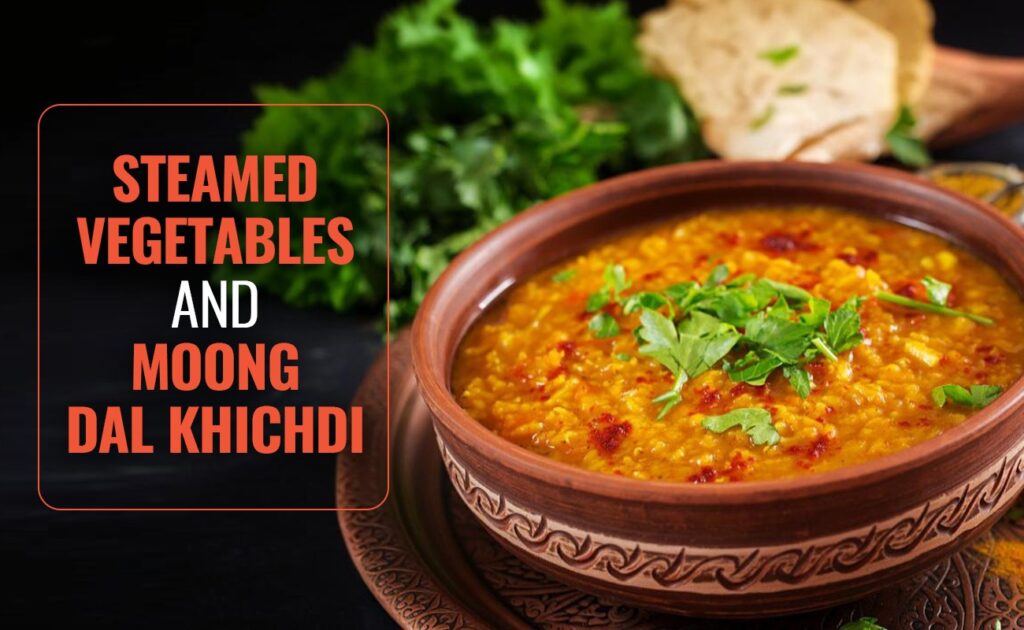
New parents should select simple, digestible food choices for their first meals after birth. Khichdi stands as a fundamental Ayurvedic post-delivery diet choice, and it consists of cooked mung dal with rice and gentle spices along with ghee.
You can pair this with:
- Steamed carrots, together with zucchini and squash, should be prepared gently.
- Fenugreek leaves, together with drumsticks, increase the mineral content of your meals.
- Asafetida (hing) provides a reduction of gas formation when added in small measure to the food.
This combination has two major benefits: it controls bloating and ensures good gut health function as well as steady energy levels.
Lactation-Boosting Ayurvedic Herbs and Spices
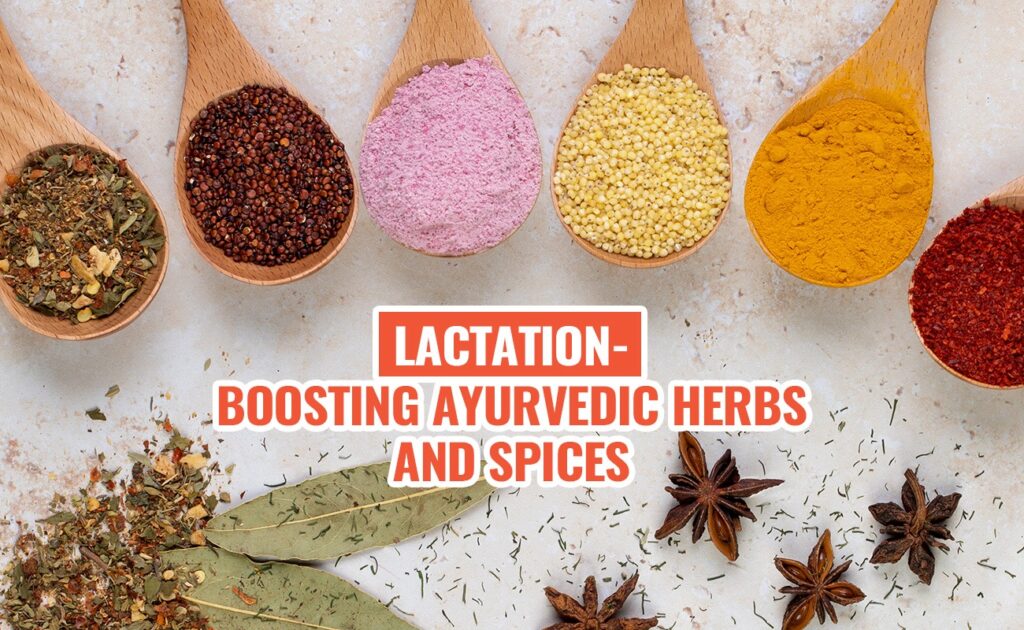
Whole postpartum Ayurvedic meals that contain particular herbs will support breastfeeding while providing nerve calmness and reducing inflammation.
Top herbs to include:
- Fenugreek (methi): Supports milk flow and digestion.
- Shatavari: Balances hormones and boosts immunity
- Turmeric: Natural anti-inflammatory and wound healer
- Ajwain: Relieves postpartum gas and boosts digestion
The meal plan features two types of healthy ingredients which can be easily combined with tea or soup and additionally dissolved in warm water. Prepared kasha yams, which are Ayurvedic spiced herbal decoctions, serve as postpartum healing support in numerous diet plans.
Sample Ayurvedic Postpartum Meal Plan
For a new postpartum mother following an Ayurvedic diet, her day could start with this schedule:
Morning (on an empty stomach):
- Warm water with a pinch of turmeric and ghee
Breakfast:
- Ragi porridge with dates, almonds, and cardamom
- Herbal tea with fenugreek and fennel
Mid-Morning Snack:
- Stewed apples or soaked raisins
Lunch:
- Moong dal khichdi with ghee and cumin
- Lightly steamed vegetables (carrots, squash, spinach)
- Buttermilk with a pinch of hing and roasted cumin
Evening Snack:
- Warm milk with Shatavari powder
- A handful of sesame seeds or laddoos made with nuts and jaggery
Dinner:
- Rice soup with drumsticks and turmeric
- A few roasted makhanas (fox nuts)
Before Bed:
- Herbal decoction or ajwain tea for digestion
This meal plan is warming, hydrating, and tailored to meet the needs of the Ayurvedic diet for postpartum healing. You can adjust ingredients based on your taste and recovery stage.
What to Avoid in a Postpartum Ayurvedic Diet
Ayurveda not only focuses on what to include but also on what to limit. In the postpartum phase, your digestion is delicate and needs care.
To prevent bloating, sluggish digestion, and mood swings, it’s best to avoid:
- Cold or refrigerated foods and drinks
- Raw salads and smoothies (too cooling for Vata)
- Overly spicy or fried items
- Caffeine and alcohol
- Processed snacks with preservatives
These can aggravate vata, disturb digestion, and slow healing. Following a postpartum diet in Ayurveda also encourages mindfulness, not just in eating but also in resting, breathing, and staying present.
Modern Science Meets Ancient Wisdom
While the Ayurvedic postpartum diet has ancient roots, modern studies back up many benefits. For instance:
- A 2018 study published in the Journal of Clinical Biochemistry and Nutrition highlighted how turmeric reduces inflammation and supports tissue repair.
- Shatavari, a popular postpartum herb, has been found to improve lactation and balance hormones.
- Fenugreek seeds have been clinically proven to boost milk supply in breastfeeding mothers.
By combining time-tested traditions with evidence-based choices, the Ayurvedic diet after delivery offers the best of both worlds.
Conclusion:
Recovery after childbirth takes time, and the right food can make all the difference. With a focus on warm, digestible, and grounding meals, the Ayurvedic postpartum diet supports your physical healing, emotional balance, and breastfeeding journey.
Let food be your medicine. Embrace the principles of postpartum diet Ayurveda, and trust your body to heal, one nurturing bite at a time.
Read Also:
- Healthy Shakes For Your Toddlers
- Nutritious Porridge Recipes For Infants
- Nourishing Makhana Recipes For Your Baby
- How to know when a baby is hungry?
- Freeze-dried baby food vs Sun Dried or dehydrated baby food
- Best Foods For Nurturing Healthy Weight Gain In Babies
- Tiny Bites for Tiny Hands: Finger Foods for Baby-Led Weaning
- Signs Your Baby Might Be Ready for Solids
- Quinoa Dal Khichdi (Baby Food) by Sproutling







